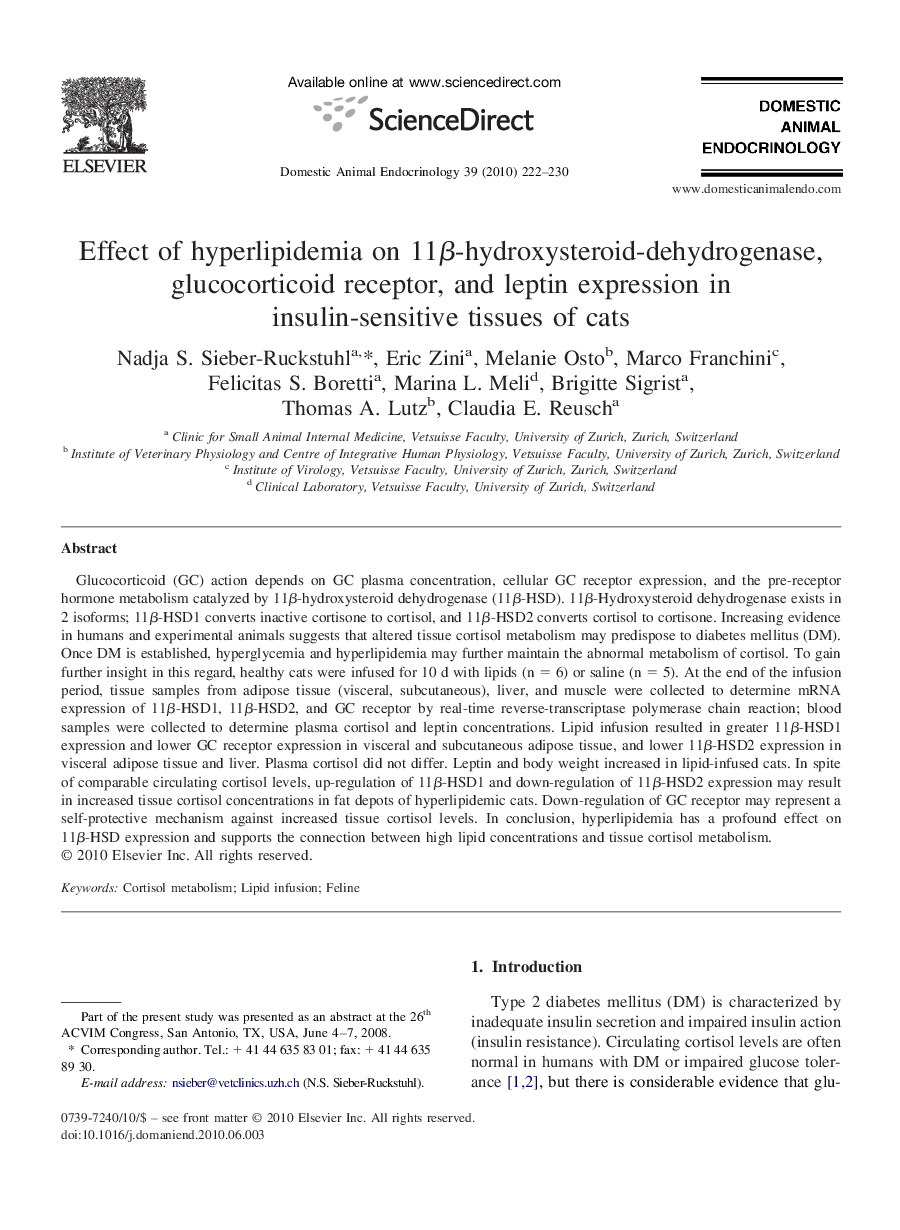| Article ID | Journal | Published Year | Pages | File Type |
|---|---|---|---|---|
| 2393733 | Domestic Animal Endocrinology | 2010 | 9 Pages |
Abstract
Glucocorticoid (GC) action depends on GC plasma concentration, cellular GC receptor expression, and the pre-receptor hormone metabolism catalyzed by 11β-hydroxysteroid dehydrogenase (11β-HSD). 11β-Hydroxysteroid dehydrogenase exists in 2 isoforms; 11β-HSD1 converts inactive cortisone to cortisol, and 11β-HSD2 converts cortisol to cortisone. Increasing evidence in humans and experimental animals suggests that altered tissue cortisol metabolism may predispose to diabetes mellitus (DM). Once DM is established, hyperglycemia and hyperlipidemia may further maintain the abnormal metabolism of cortisol. To gain further insight in this regard, healthy cats were infused for 10 d with lipids (n = 6) or saline (n = 5). At the end of the infusion period, tissue samples from adipose tissue (visceral, subcutaneous), liver, and muscle were collected to determine mRNA expression of 11β-HSD1, 11β-HSD2, and GC receptor by real-time reverse-transcriptase polymerase chain reaction; blood samples were collected to determine plasma cortisol and leptin concentrations. Lipid infusion resulted in greater 11β-HSD1 expression and lower GC receptor expression in visceral and subcutaneous adipose tissue, and lower 11β-HSD2 expression in visceral adipose tissue and liver. Plasma cortisol did not differ. Leptin and body weight increased in lipid-infused cats. In spite of comparable circulating cortisol levels, up-regulation of 11β-HSD1 and down-regulation of 11β-HSD2 expression may result in increased tissue cortisol concentrations in fat depots of hyperlipidemic cats. Down-regulation of GC receptor may represent a self-protective mechanism against increased tissue cortisol levels. In conclusion, hyperlipidemia has a profound effect on 11β-HSD expression and supports the connection between high lipid concentrations and tissue cortisol metabolism.
Keywords
Related Topics
Life Sciences
Agricultural and Biological Sciences
Animal Science and Zoology
Authors
Nadja S. Sieber-Ruckstuhl, Eric Zini, Melanie Osto, Marco Franchini, Felicitas S. Boretti, Marina L. Meli, Brigitte Sigrist, Thomas A. Lutz, Claudia E. Reusch,
